Ikoyi opened in the summer of 2017, an unusual venture in St James that is attempting to bring a fine dining approach to West African cuisine. Chef and owner Jeremy Chan, a former energy analyst who has cooked at Dinner and did a three-month stage at Noma, has teamed up with Nigerian born Iré Hassan-Odukale. The latter was born in the affluent Ikoyi district of Lagos, formerly a Britsih expatriate community and now the poshest district of the sprawling city. The restaurant is in the St James Market development a little south of Piccadilly Circus station. The dining room can seat up to 48 diners at one time, served by a team of five in the kitchen.
The restaurant serves what it calls “Jollof cuisine”. Jollof is a rice dish popular in Nigeria and indeed throughout west Africa, a kind of spicy paella for want of a better description – more on this later. The name comes from the former kingdom of Jolof, which was in what is now Senegal. The menu format was: snack, starters and main courses plus desserts, and there was a two-course cheap lunch menu at £20. In charge of the kitchen at this service was sous-chef Gaz Herbert, who had spent several months in Nigeria researching the cuisine there, and was very knowledgeable when I asked questions about the many unusual ingredients. It is important to understand that the kitchen is not trying to reproduce Nigerian dishes, but rather to take west African ingredients and dishes as an inspiration, and often to apply them to more familiar and luxurious ingredients. Hence it is more a fusion approach than one that is trying to directly reproduce dishes from another culture.
The short wine list had 26 labels, ranging in price from £30 to £135. Examples were Eymann Riesling Goennheimer 2016 at £37 for a bottle that you can find in the high street for £7, Rippon Suavignon Blanc 2016 at £60 compared to its retail price of £19, and Carpineto Brunello di Montalcino 2012 at £90 for a wine that will set you back £39 in the shops.
A snack of dambu nama (£6.50), a northern Nigerian dish, came with whipped bone marrow tart. The tart is made by cooking pancakes with brown butter and bone marrow, which are then shaped into shells. The filling of the shells was pickled spring onions and rendered bone marrow whipped with crème fraiche. Finally, on top of this was aged longhorn beef that was braised, broken down and mixed with the rendered fat then dehydrated and blended with spices into shreds. The overall effect is of gently spiced strips of beef given flavour from the spices and pickling juices of the onions, the texture contrasting with the crisp tart (14/20).
A further snack of buttermilk plantain (cooking bananas) came with a mousse of whipped Scotch bonnet chillies (£5.50). This is a little snack but a lot of work to make, involving no less than 33 ingredients, including shallots, red chillies and Scotch bonnets infused in oil and made into an emulsion, with a pickling liquor that is flavoured with honey, lavender and grains of selim (kimba pepper). The plantains are dusted in dehydrated raspberry powder and spices. This was certainly an interesting dish, the powder bringing a sweet and sour contrast to the plantains, the mousse smooth and delivering a healthy kick of spice kick (14/20).
Octopus (£15) came with ndole, a Cameroon sauce of stewed nuts, ndoleh leaves and fish, and was served with Calcot (Catalonion green onion). Octopus, even in Japan, can be a chewy creature, but here the cephalopod was gently cooked for over three hours with black garlic and grains of Selim (kimba pepper). A kombu dashi is then simmered with roasted cashew and peanuts and blended into a nut cream, cooled and blended with watercress, the ndoleh leaves and a paste of dried crayfish powder and Penja peppercorns, which come from the Cameroon. The sauce is then heated when the order is placed. The octopus itself was very tender and the ndoleh leaves, native to west Africa, brought a slight bitterness to the dish (15/20).
Scallop (£18) came with ehuru (African nutmeg), burnt cream and caviar. The Orkney scallops were alive just before service and were steamed and had some sweetness of flavour, and were delicately cooked. The sauce was made by burning fresh cream in a hot pan and seasoning with ehuru and palm wine, garnished with Exmoor caviar and roasted walnut oil. I was not entirely convinced by the burnt cream as an accompaniment to the delicate scallops, though the saltiness of the caviar worked well, and this was certainly a very pleasant dish (14/20).
Wild Scottish turbot (£30 per person) was from a roughly 2.5 kg fish, which is a moderate size but ended up having quite good flavour – with turbot, the rule of thumb is the bigger the fish, the better. This was seared and roasted on a low heat until mostly cooked, then basted in a beurre noisette with garlic, thyme and dried chillies along with the roasting juices. It was served on the bone and had a slightly dense texture. This came with grilled okra and a sauce made from mbongo seeds (aka alligator pepper), which have a pungent flavour, along with burned tomatoes and confit lemongrass, ginger and toasted grains of paradise, with squid ink to blacken the sauce rather than the mbongo sticks that would be used in Africa. This came with sea beets and pickled steamed onions. The fish was good but I was also very impressed by the okra, which can easily become slimy in less skilled hands but here had excellent texture (14/20).
My favourite dish was smoked crab jollof rice (£15). The jasmine rice is cooked with onions, tomatoes, ginger and Scotch bonnet chillies simmered in a stock involving shiitake mushrooms, katsuoboshi (dried, fermented tuna), kombu (kelp) and niboshi (dried sardines). The rice is steamed with the stock, then cooled and roasted to order, finished with a little wok hei paste (hot oil poured over a paste of ginger, spring onions and garlic). The dish is completed by a custard made of the brown crab meat along with fresh crab salad that is mixed with apple, chives, coriander and sorrel, the whole dish smoked to order before being served. All that work was well worth it, the rice having distinct grains and there being a distinct spicy kick from the Scotch bonnet chillies, but the spicy flavours enhanced rather than overwhelmed the crab (15/20).
For dessert, a parfait of mango (£8.50) came with buttermilk and ogbono seeds (the dried seed of the mango tree, used as a thickener). This was quite refreshing, the acidity of the mango working nicely with the slight sourness of the buttermilk (14/20). Even the coffee was from West Africa, a cafetiere of Cameroon coffee, which was mild and enjoyable.
Service was charming, with a waiter from Normandy as well as that rarest of creatures, an English waitress. The staff seemed genuinely enthusiastic about the unusual menu and were very helpful in explaining the esoteric ingredients. The bill came to £92 per head with a couple of glasses of wine each. If you had three courses and coffee and shared a modest bottle of wine then a typical cost per head might come to around £85, though of course you could also opt for the cheap lunch menu, which today included the excellent jollof rice. This is not cheap by any stretch of the imagination, though the kitchen is using expensive ingredients such as scallops and turbot, has quite a large kitchen team for the number of covers, and doubtless the rent here, just off Jermyn Street, is far from low. I hope it prospers, because as well as the unusually engaged and pleasant staff, the cooking is interesting, ambitious and capable. London is a melting pot culturally, so this fusion of west African influences with more familiar ingredients seems entirely appropriate, and is very original. If you want an unusual but enjoyable meal in central London then you could do a great deal worse than this.
Further reviews: 22nd Jun 2023 | 01st Apr 2022

































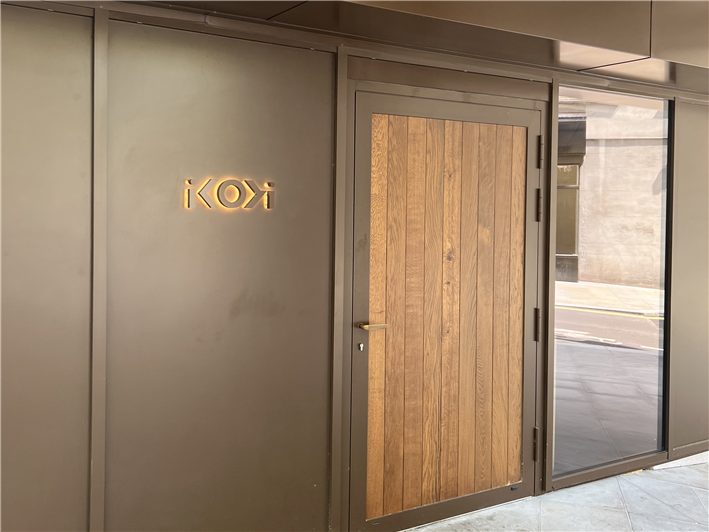

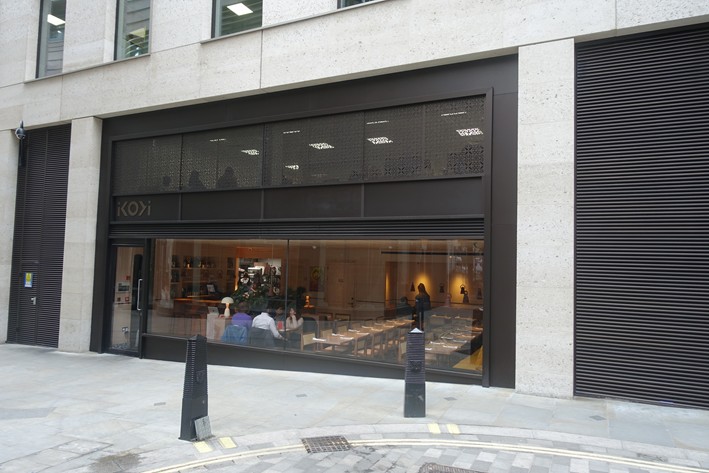
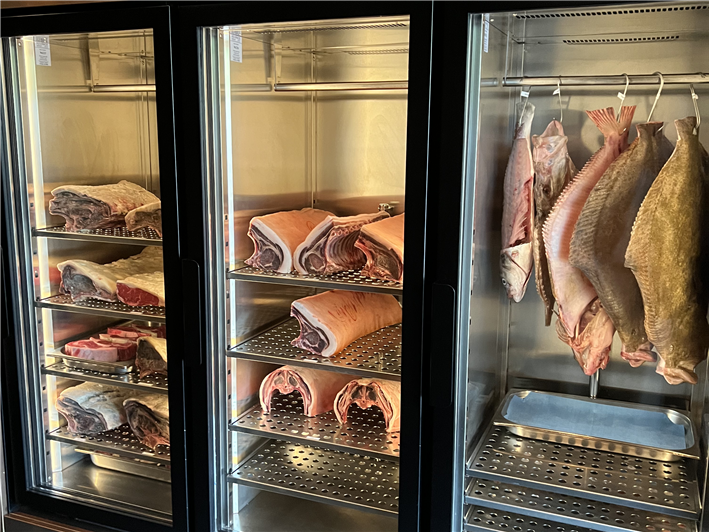
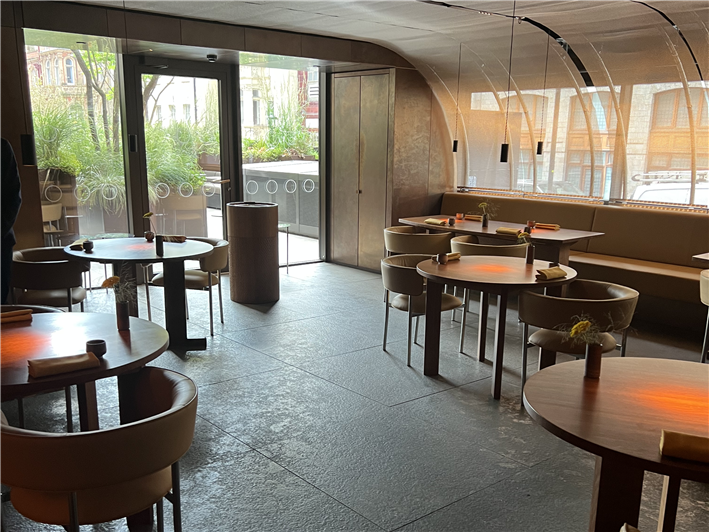
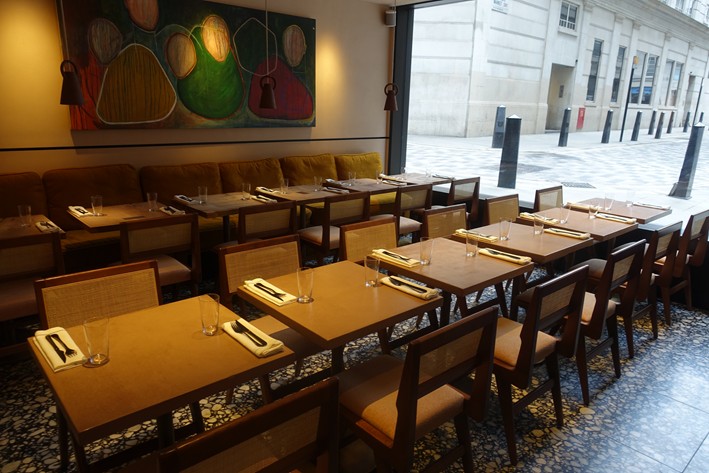
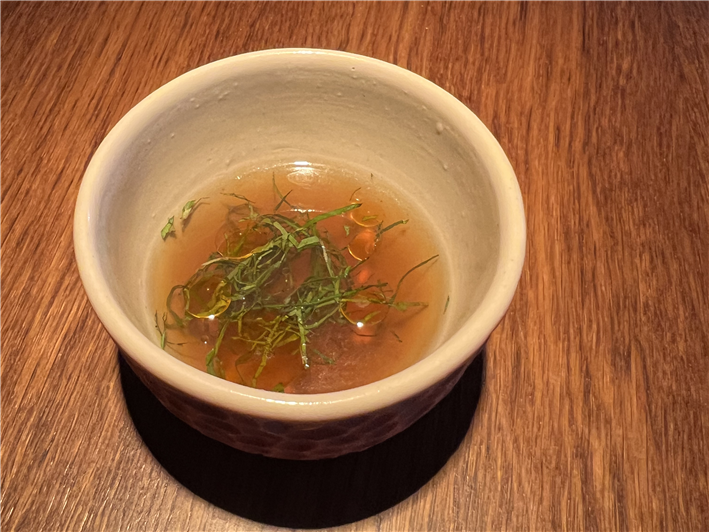
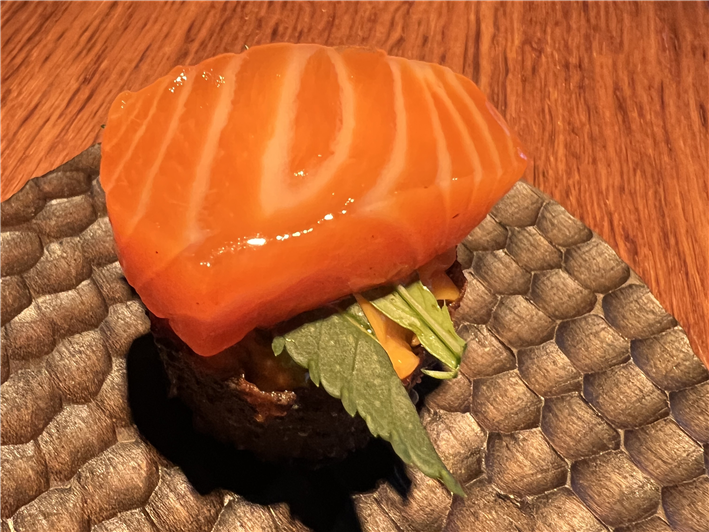
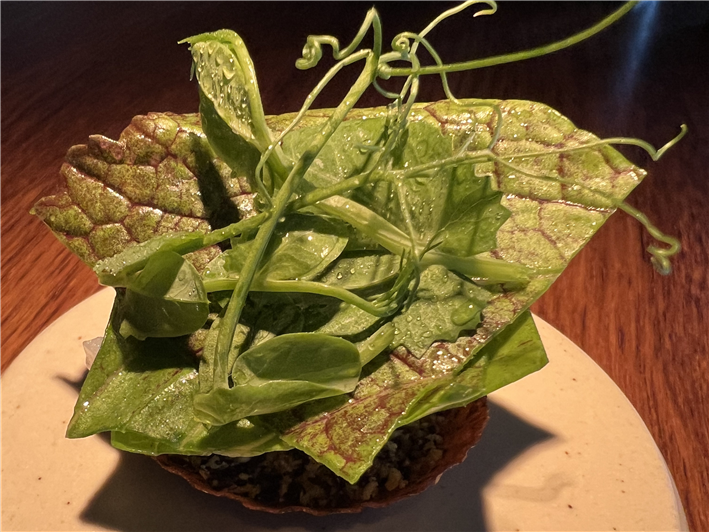
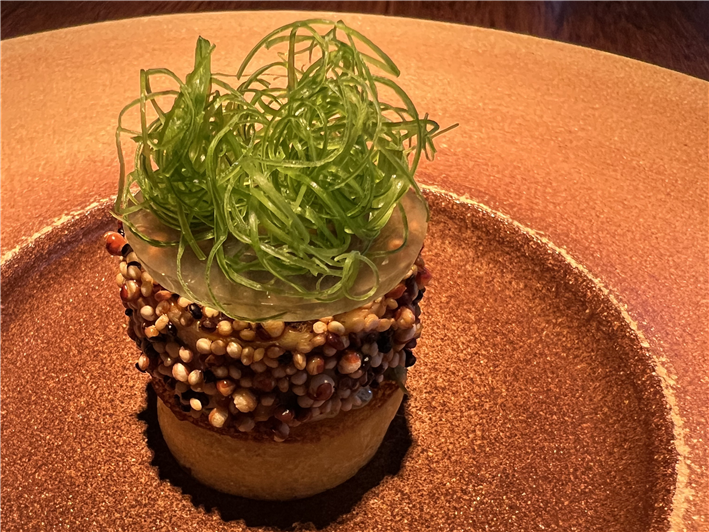
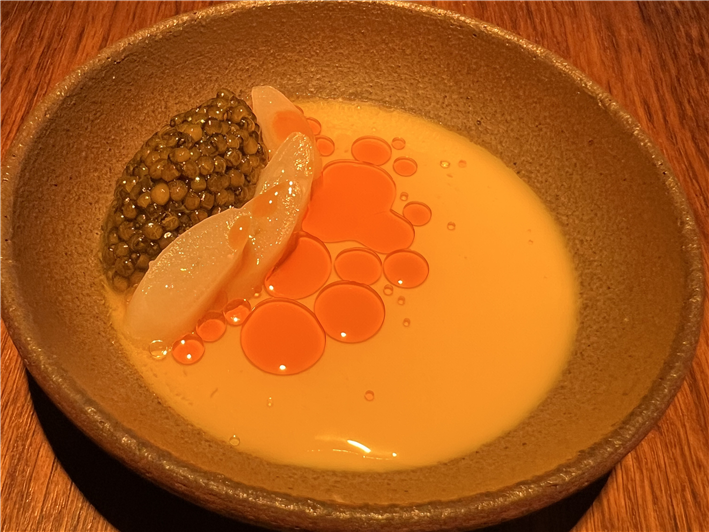
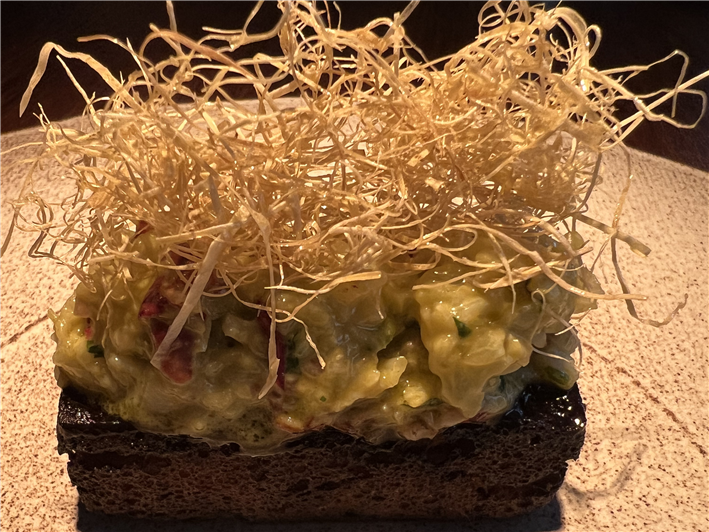
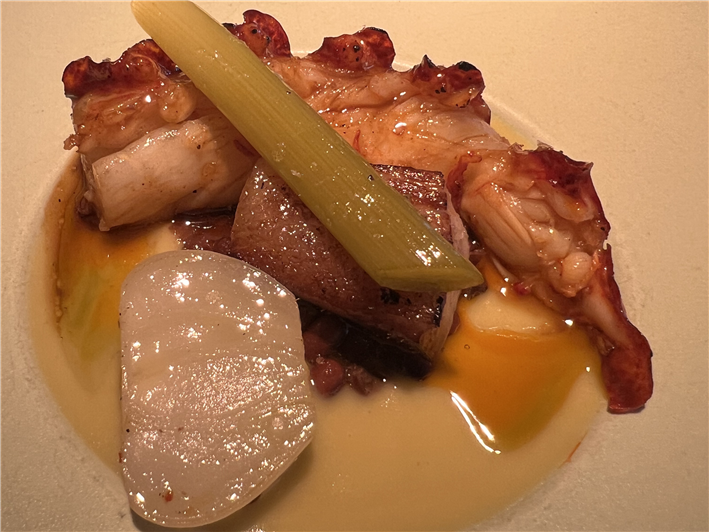
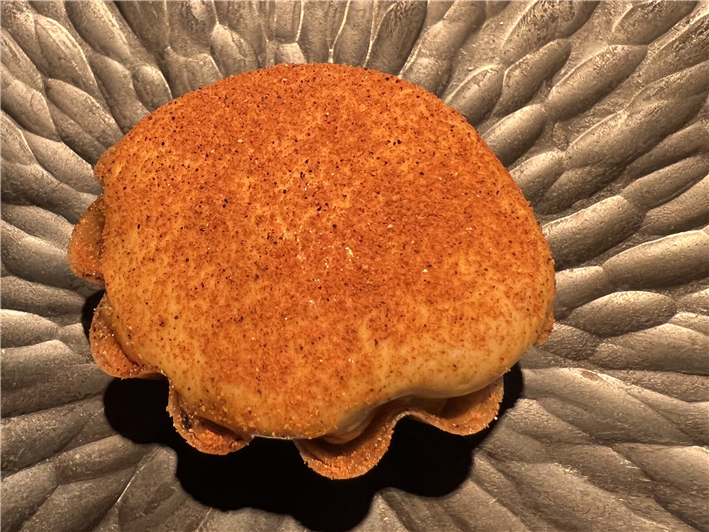
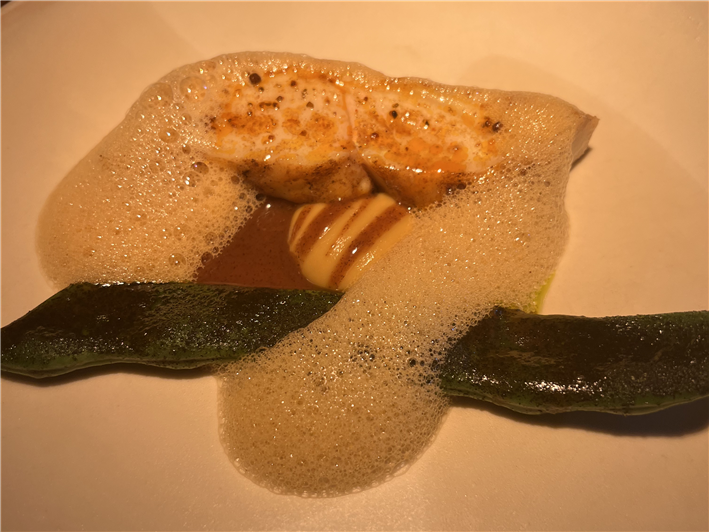
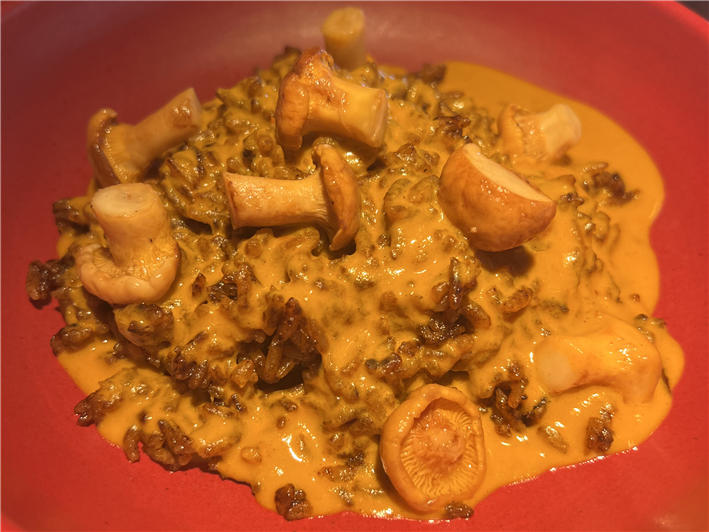
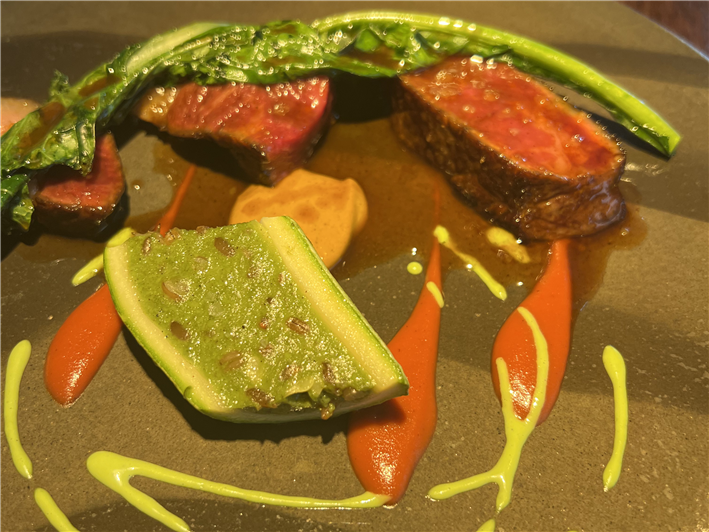
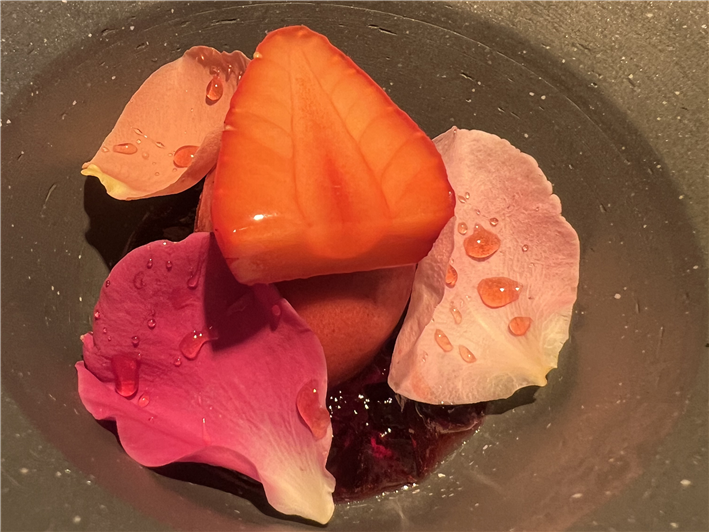
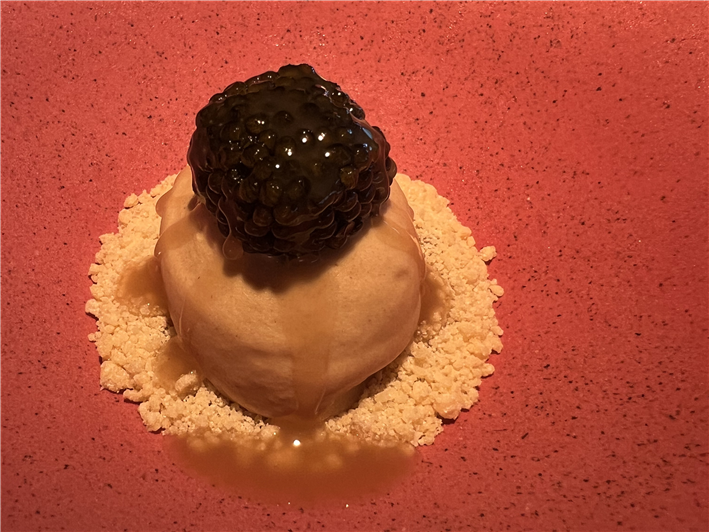
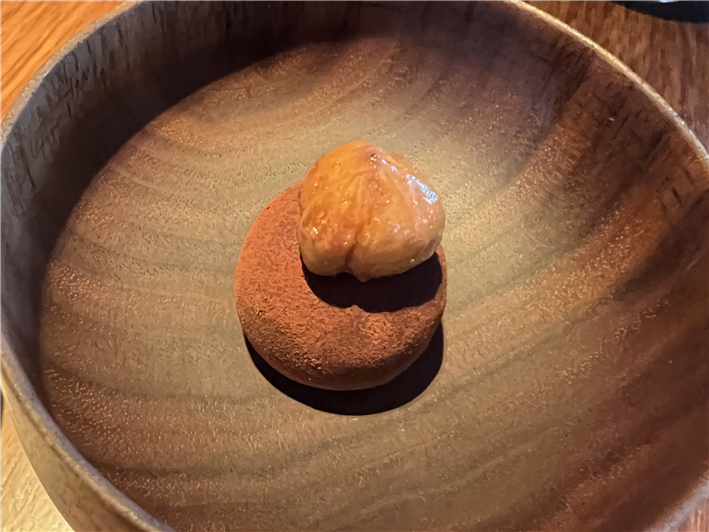
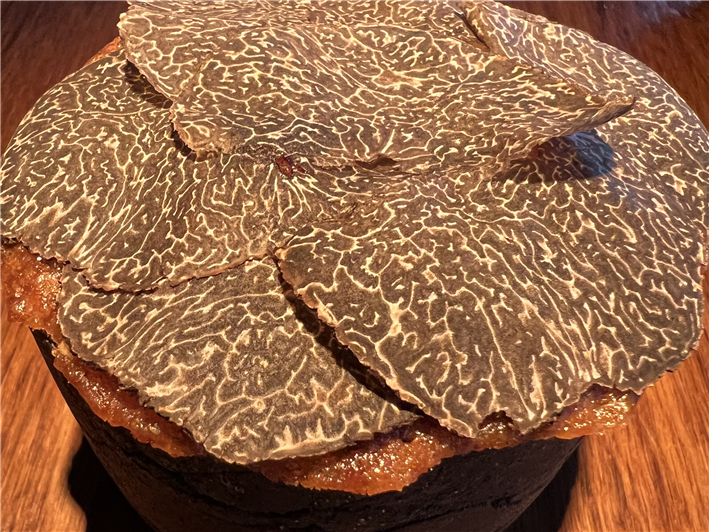
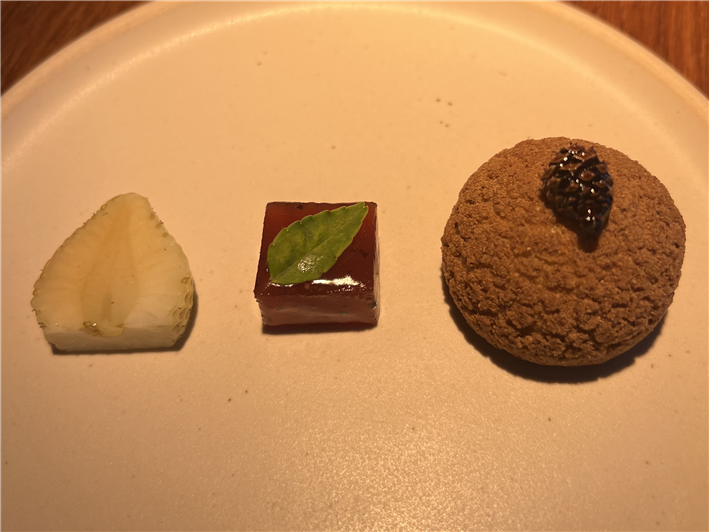
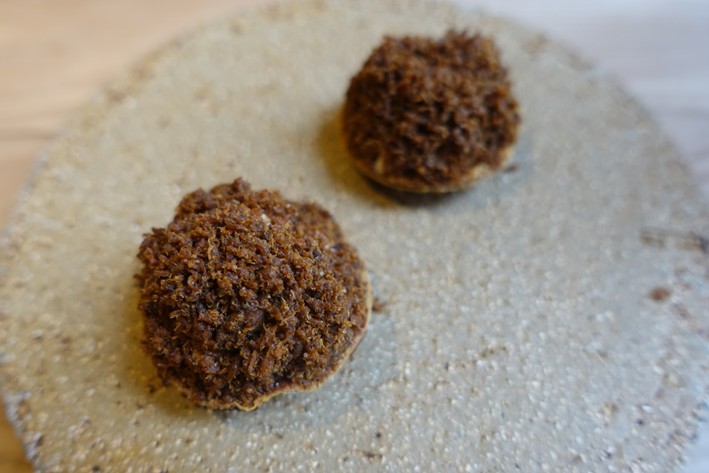
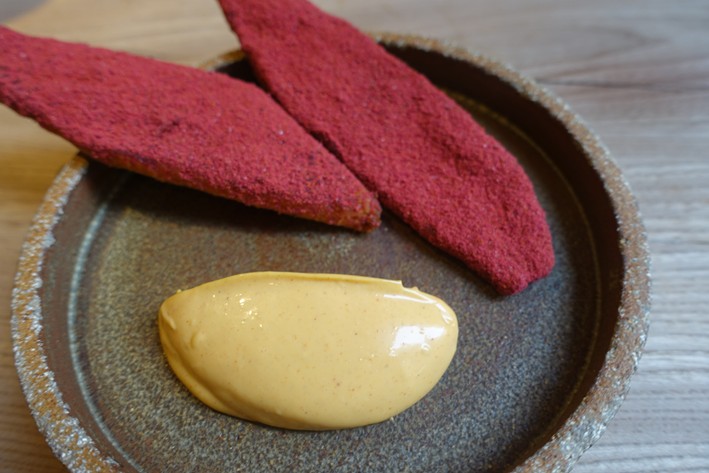
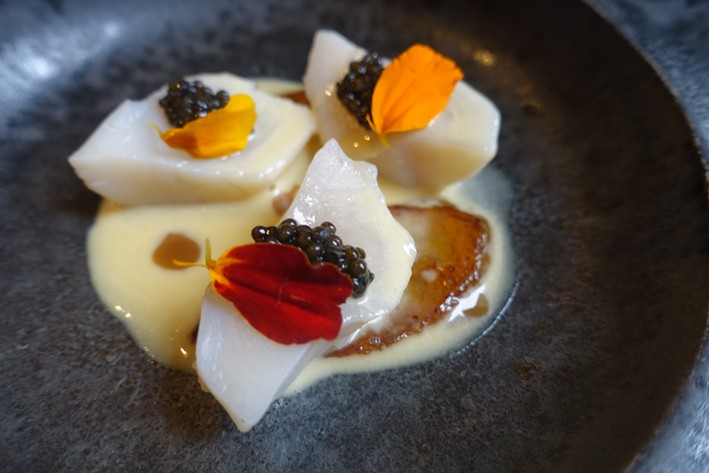
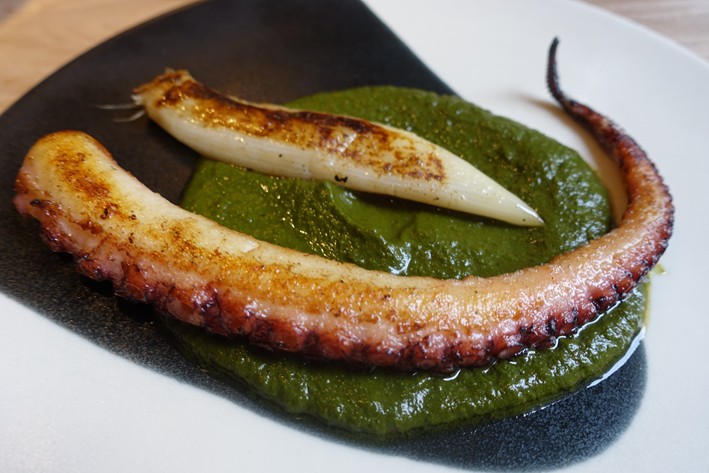
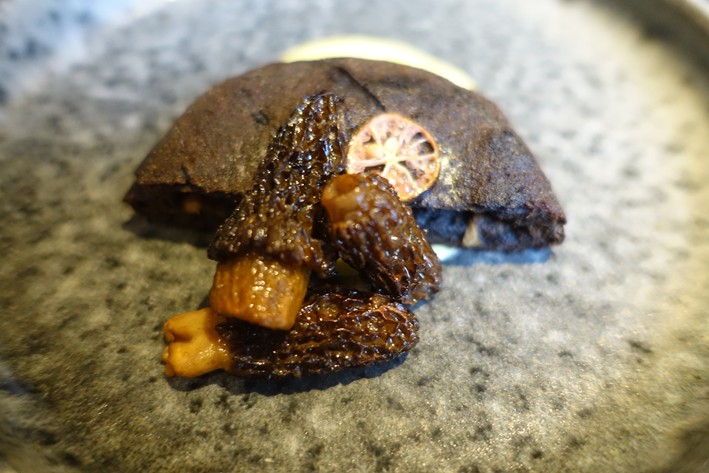
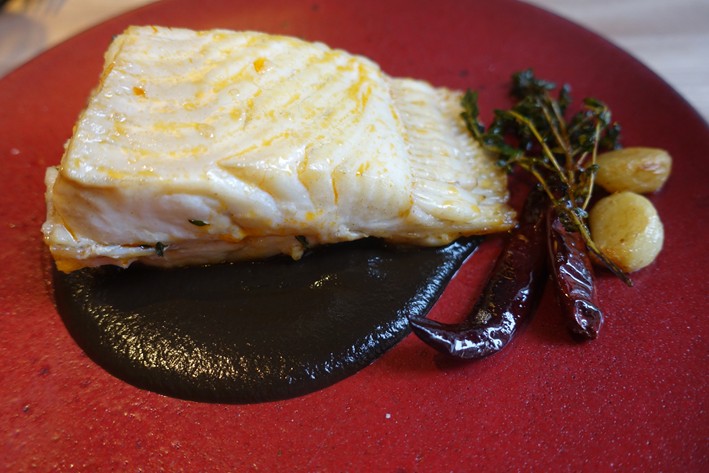
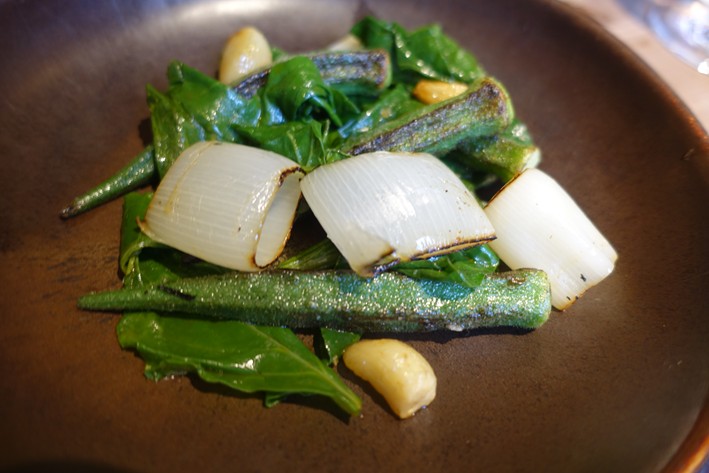
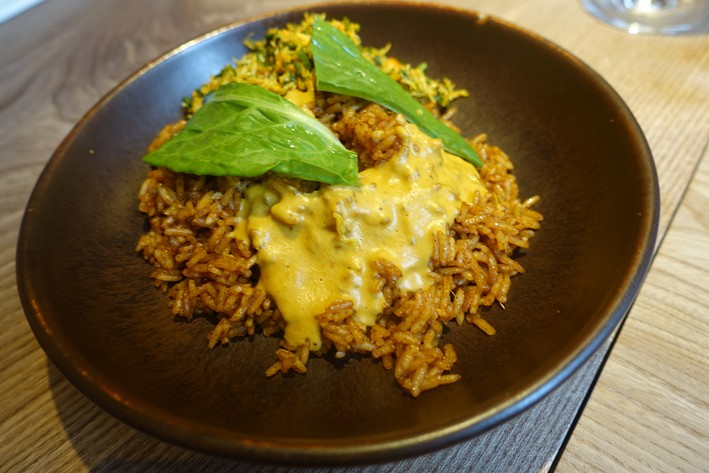
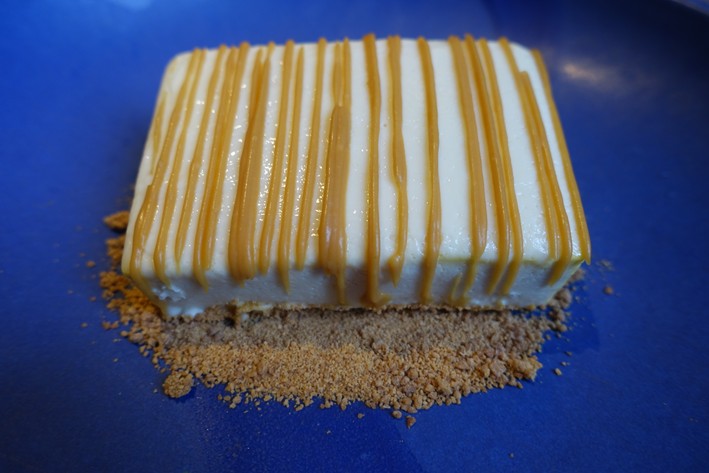
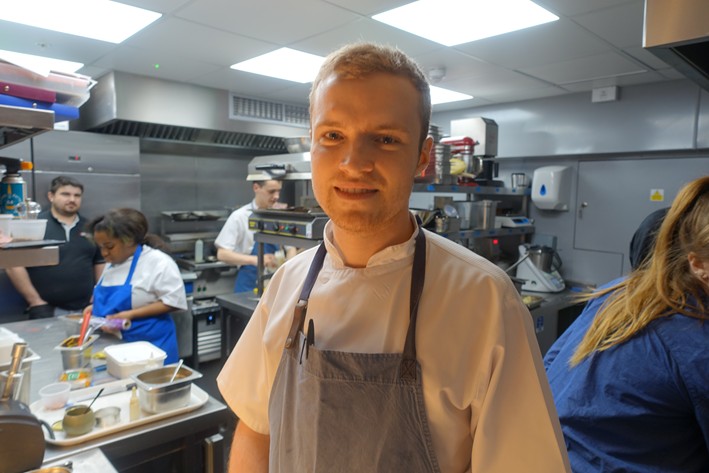

Add a comment
Thank you for submitting your comment, this will be checked and added to the website very soon.
User comments